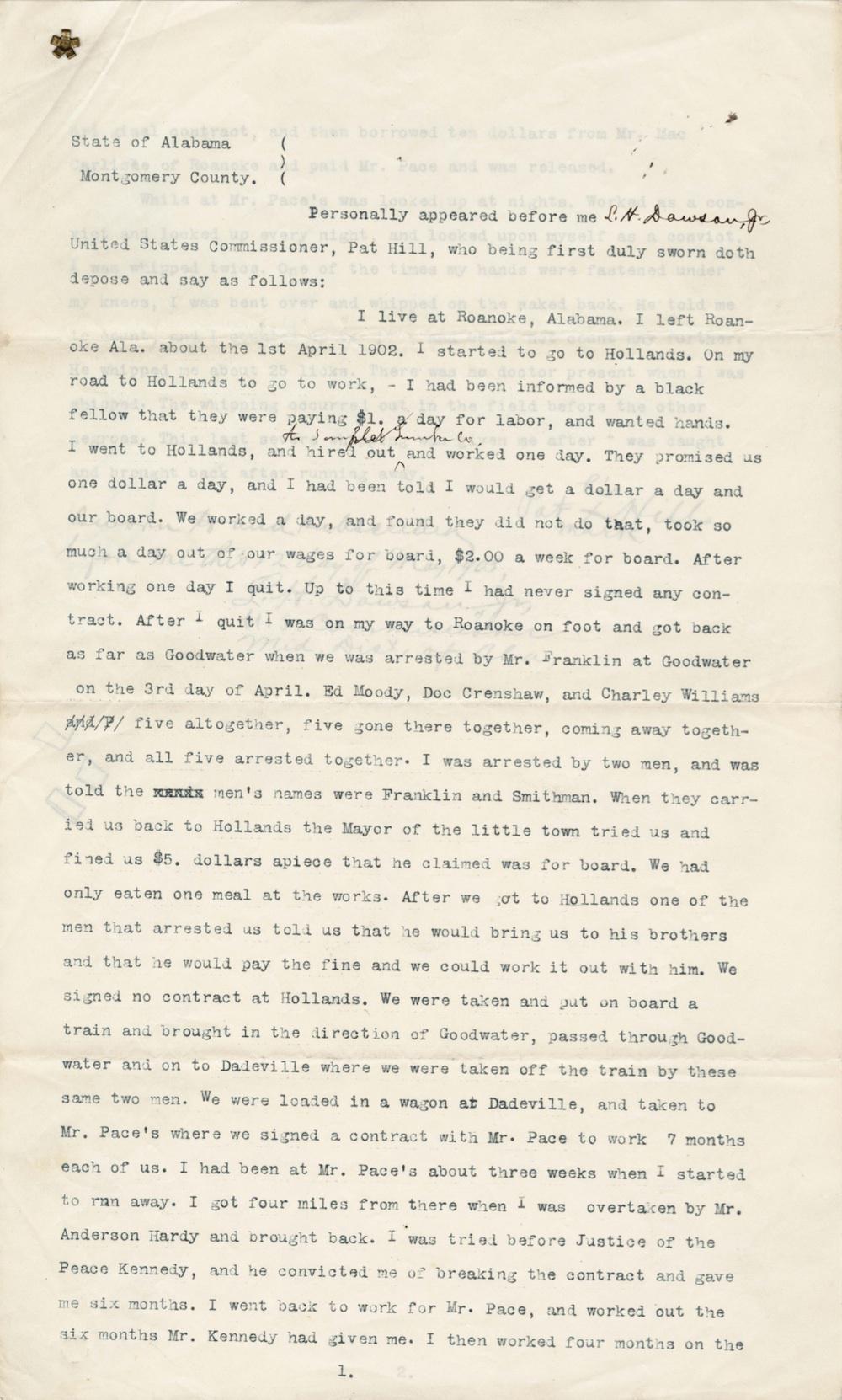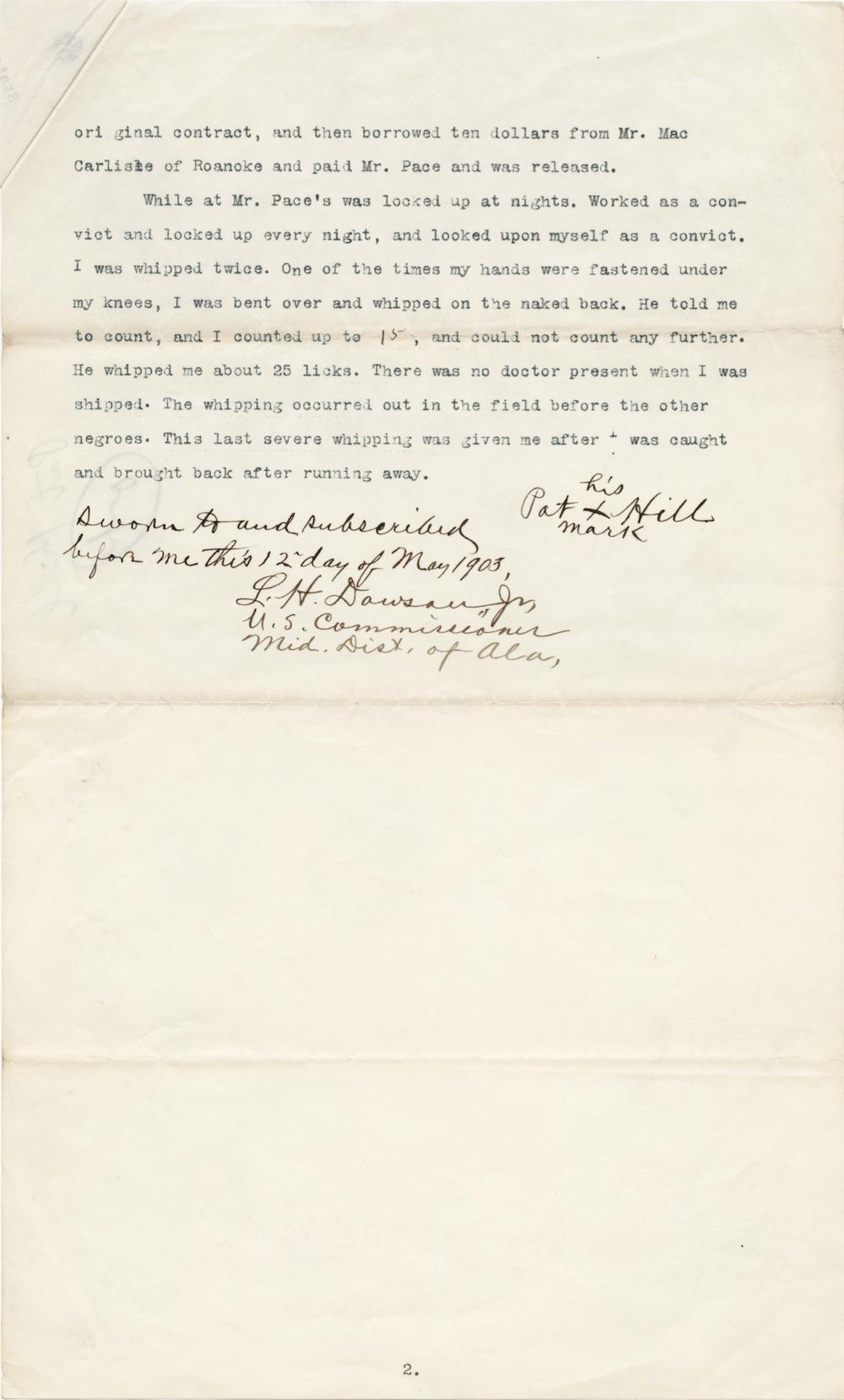The Vault is Slate’s history blog. Like us on Facebook, follow us on Twitter @slatevault, and find us on Tumblr. Find out more about what this space is all about here.
In this 1903 affidavit, Pat Hill, a laborer from Roanoke, Alabama, described the chain of events that led to his virtual enslavement at the hands of local plantation owner John W. Pace. The plainly written description, sealed with Hill’s “X” signature, shows how local businessmen, law enforcement, and judiciary conspired to enmesh Hill. A series of happenings that began with Hill’s arrest for leaving one job ended with his 10-month imprisonment on the Pace plantation, where he was whipped and locked up at night.
Blacks in the South were often coerced into labor throughout the first half of the 20th century, in a system called “peonage.” Pat Hill was unlucky enough to experience both common modes of entry to the peonage system: First, he was held in a job to pay off an unfairly assessed debt to an employer; then, he was arrested, convicted by a corrupt judge, and forced to work as a convict.
Writing about the Pace case, historian Pete Daniel describes how the plantation owner used his position as a county contractor for convict labor to obtain workers with convictions and without. “Constables with blacks in tow invariably checked with Pace to ascertain if he needed extra labor,” Daniel writes.
By this method Pace kept a large labor force of valid convict-lease prisoners and also the victims that local constables brought in for minor infractions. … Pace made no distinction between those on bond and the genuine prisoners.
While federal prosecutors indicted Pace and his collaborators of many counts of peonage or conspiracy to enable peonage, Pace managed to evade the public eye by pleading guilty to some of the charges, thereby avoiding trial.

National Archives.

National Archives.